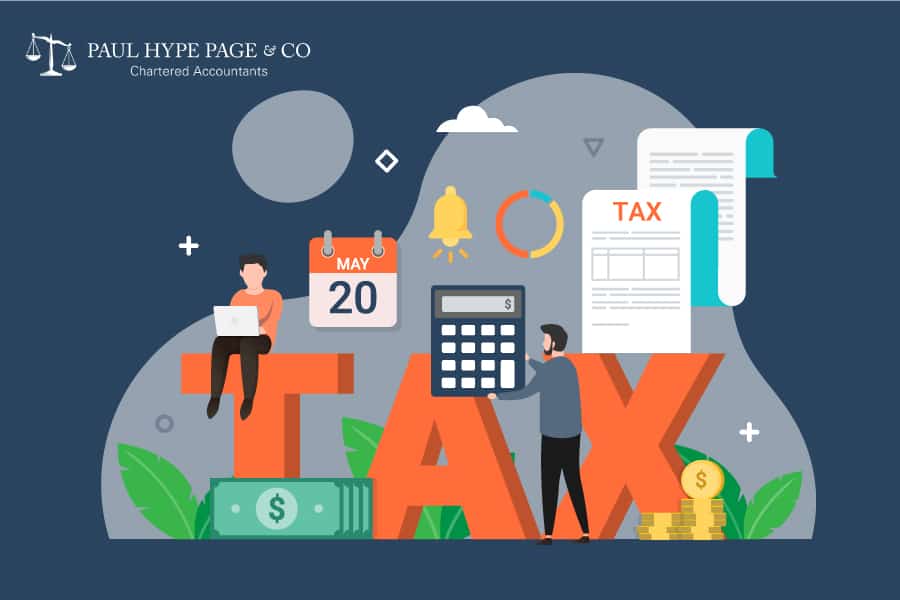Outline
- Tax Structure
- What are the benefits and incentives?
- Will my company be eligible for tax exemptions after the 3-year period?
- What are the reliefs and deductions?
- What is the single-tier tax system?
- What are the advantages of the single-tier system?
- How to Qualify for the Tax Exemption Scheme for New Start-Up Companies?
- Maximizing Tax Efficiency
- FAQs
Corporate Income Tax (CIT) is a tax imposed on a company’s profits, payable to the Inland Revenue Authority of Singapore (IRAS). In this guide, we delve into the details of corporate income tax in Singapore, explore strategies to reduce your tax burden and outline key deadlines to ensure compliance. By the end, you’ll have the essential knowledge to make well-informed decisions for your business.
Tax Structure
Singapore’s corporate tax system is designed to be straightforward and business-friendly. Operating under a single-tier framework, corporate profits are taxed solely at the company level, ensuring that shareholders are not subjected to additional taxation on dividends. This simplifies tax compliance and makes Singapore an attractive destination for businesses looking to optimize their financial operations.
Singapore’s standard corporate tax rate is a flat 17%, which applies uniformly to domestic and foreign companies operating within the country. Over the years, this rate has been strategically reduced to maintain Singapore’s competitiveness on the global stage, fostering a favorable environment for investment and economic growth.
The country employs a territorial taxation system, focusing primarily on income that is either earned within Singapore or brought into the country. Foreign-sourced income remains tax-exempt unless remitted to Singapore, providing significant relief to multinational corporations. This territorial approach helps companies avoid the complexities of double taxation, further incentivizing global businesses to set up operations in Singapore.
| Type of Singapore Corporate Tax Rates | Tax Rate (%) |
| Headline Tax on Corporate Profits | 17% |
| Effective Tax on New Start-Up Company on $300k Profits | 7.34% |
| Effective Tax on Existing Companies Incorporated more than 3 Years on $300k Profits | 8.39% |
| Tax Rate on One-Off Capital Gains from Company’s Divestment | 0% |
| Tax Rate on Dividends Distributed to Local and Overseas Shareholders | 0% |
| Tax Rate on Foreign-Sourced Income Not Accruing in or Derived From Singapore | 0% |
What are the benefits and incentives?
Singapore’s government has implemented several forward-thinking incentives to promote business growth and encourage innovation, particularly targeting startups and small-to-medium enterprises (SMEs). These initiatives are aimed at reducing the financial strain on businesses during their formative years and fostering long-term success.
Tax Exemption Scheme for New Start-Up Companies
Newly incorporated companies can take advantage of generous tax exemptions on their chargeable income during the first three years of operation (3 consecutive Years of Assessment). Specifically, 75% of the first SGD 100,000 of chargeable income and 50% of the next SGD 100,000 are exempt from taxation. This scheme is designed to help startups redirect resources into scaling their operations and achieving profitability.
Will my company be eligible for tax exemptions after the 3-year period?
Partial Tax Exemption (PTE)
Yes, after the initial three-year period, businesses can still benefit from partial exemptions on their chargeable income. Under this scheme, 75% of the first SGD 10,000 and 50% of the next SGD 190,000 are exempt. This incentive reduces the effective tax rate for businesses, ensuring they remain competitive as they grow.
Corporate Income Tax Rebate
Periodic tax rebates are introduced to ease the overall tax burden on businesses. For instance, in the Year of Assessment 2024, the government offered a 50% tax rebate capped at SGD 40,000. Such measures provide immediate financial relief and allow companies to reinvest savings into operational improvements and expansion initiatives.
What are the reliefs and deductions?
Singapore’s corporate tax system includes a range of reliefs and deductions that help businesses optimize their taxable income. These provisions are particularly valuable for companies seeking to manage costs while maintaining compliance with tax regulations.
Deductible Business Expenses
Companies can deduct expenses that are wholly and exclusively incurred in generating taxable income. This includes expenditures such as employee salaries, office rental costs, and marketing expenses. These deductions reduce the company’s overall taxable income, providing significant financial savings.
Capital Allowances
Instead of claiming depreciation for assets such as machinery, vehicles, or equipment, businesses can apply for capital allowances. These allowances enable companies to spread the cost of qualifying capital expenditures over several years, reducing their taxable income and aligning expenses with revenue generation.
Double Tax Deduction for Internationalization (DTDi)
To encourage international expansion, the DTDi scheme offers a 200% tax deduction on qualifying expenses such as overseas business development trips, participation in trade fairs, and market research. This deduction requires pre-approval from the relevant authorities, ensuring that the expenses align with Singapore’s objectives of fostering global trade and economic outreach.
What is the single-tier tax system?
The single-tier tax system refers to a taxation framework in which corporate profits are taxed only once at the company level. In this system:
| Corporate Profits Taxed Once | A company pays corporate income tax on its taxable profits. Once this tax is paid, the profits distributed to shareholders as dividends are not subjected to further taxation. |
| No Double Taxation for Shareholders | Shareholders do not need to pay additional personal income tax on the dividends they receive, as the tax obligation is considered fulfilled at the corporate level. |
| Simplified Tax Compliance | This system simplifies the taxation process and avoids the complications of double taxation, which can occur when both the company and shareholders are taxed on the same income. |
What are the advantages of the single-tier system?
- Fairness: Ensures that income is taxed only once, promoting equity.
- Attractiveness to Investors: This makes the tax regime more appealing to investors, especially those concerned about double taxation.
- Business-Friendly Environment: Reduces administrative burden and compliance costs for companies.
In the context of Singapore, the single-tier system has been in place since 2003, contributing to the country’s reputation as a global business hub.
How to Qualify for the Tax Exemption Scheme for New Start-Up Companies?
To enjoy the Tax Exemption Scheme for New Start-Up Companies in Singapore, companies must meet the following criteria:
- Incorporated in Singapore: The company must be a locally incorporated entity.
- Tax Residency: The company must be considered a tax resident in Singapore for the relevant Year of Assessment (YA). This means that the control and management of the company, such as board meetings and key decision-making, must take place in Singapore. If board meetings are held outside Singapore, the company may lose its tax residency status for that YA.
- Shareholder Requirements:
- The company must have no more than 20 shareholders.
- All shareholders must be individuals, or at least one individual must own at least 10% of the company’s ordinary shares.
Maximizing Tax Efficiency
Singapore’s corporate tax framework is a cornerstone of its reputation as a global business hub. By understanding and leveraging the available tax structure, benefits, and reliefs, companies can significantly reduce their tax liabilities and reinvest savings into growth initiatives. To navigate the complexities and ensure compliance with the Inland Revenue Authority of Singapore (IRAS), businesses are encouraged to consult tax professionals who can provide tailored advice and support.
FAQs
The standard corporate tax rate in Singapore is 17%, applied to both local and foreign companies operating within the country.
Under the single-tier tax system, corporate profits are taxed only at the company level, and dividends distributed to shareholders are not subject to further taxation.
Foreign-sourced income is generally tax-exempt unless it is remitted to Singapore. This approach prevents double taxation and encourages global business operations.
Startups can benefit from the Start-Up Tax Exemption (SUTE), which exempts 75% of the first SGD 100,000 of chargeable income and 50% of the next SGD 100,000 for the first three years.
After the first three years, companies can qualify for the Partial Tax Exemption (PTE), which exempts 75% of the first SGD 10,000 of chargeable income and 50% of the next SGD 190,000.
Yes, the government occasionally introduces tax rebates, such as a 50% rebate for the Year of Assessment 2024, capped at SGD 40,000.
Expenses that are wholly and exclusively incurred to generate taxable income, such as salaries, office rentals, and marketing costs, are tax-deductible.
The DTDi scheme provides a 200% tax deduction on qualifying expenses for overseas business development, including trade fairs and market research, subject to pre-approval.
No, Singapore does not impose a tax on capital gains, making it an attractive destination for businesses with investment activities.
Singapore’s tax structure offers low rates, exemptions, and incentives, reducing tax liabilities and promoting reinvestment, making it ideal for startups and global companies.
About The Author
Share This Story, Choose Your Platform!
Related Business Articles




